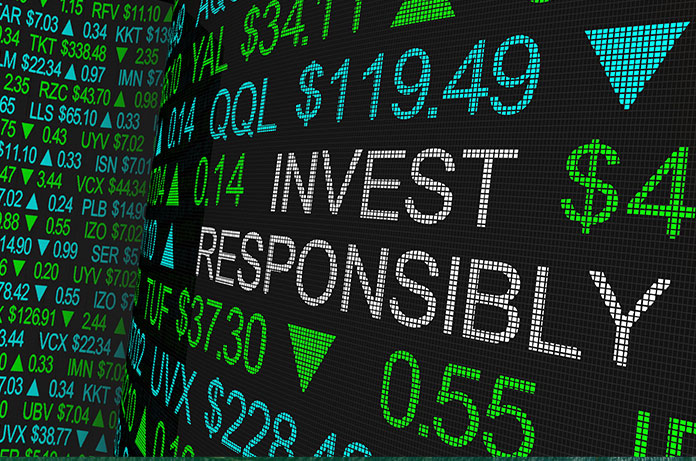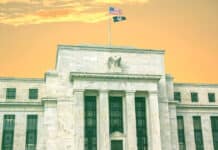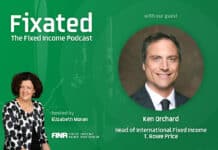
Socially conscious investors have been putting their money where their mouths are and starting a wave of investments in companies and funds that follow environmental, social and governance (ESG) criteria.
These criteria measure how a company performs as a steward of nature; manages its relationships with employees, suppliers, customers and communities; and also its leadership and how it deals with executive pay, audits, internal controls, and shareholder rights.
The COVID-19 pandemic seems to have increased the focus on these types of investments according to S&P Global Ratings: “Recent growth in social bond issuance indicates that the COVID-19 pandemic has not turned issuers’ or investors’ attention away from sustainable finance — rather, interest seems to be growing.”
McKinsey & Company have said that from their research, a strong ESG proposition – apart from morally – makes financial sense linking to cash flow in five important ways: (1) facilitating top-line growth, (2) reducing costs, (3) minimising regulatory and legal interventions, (4) increasing employee productivity, and (5) optimising investment and capital expenditures.
Impact Investing – Combining Social & Environmental Impact With Financial Return
Similarly, the market for impact investing – investments that deliver positive social or environmental impact alongside a financial return – is experiencing exponential growth in Australia, more than tripling over the past two years from $5.7 billion to $19.9 billion, according to a study released in June by the Responsible Investment Association Australasia (RIAA).
Conducted for RIAA by Deakin University Business School, the study reveals the burgeoning appetite for impact investing, with Australian investors – from super funds to family offices – indicating they’d like to increase their allocation towards impact investments more than fivefold to $100 billion over the next five years, and invest in clean energy, housing, health and wellbeing, education and conservation, among other themes.
“As evidence mounts that companies with better records on social issues, environmental sustainability and good governance are more resilient to COVID market turbulence, this study shows a market delivering strong financial returns, while also positively impacting the lives of tens of thousands of people, such as through employment pathways, education, and health services, as well as benefiting our environment,” said Simon O’Connor, CEO of RIAA.
As sustainable investing enters the mainstream it is important to understand that some investment products walk the walk more than others. Some will claim to be ESG compliant, whilst others will have met rigorous standards and scrutiny from organisations like the RIAA.
It is important for each investor to set their investment goals, not just in terms of returns, but where they are comfortable investing their money. Some may seek to exclude certain stocks or sectors or include more which are deemed ESG favourable. Do your research and don’t be afraid to ask hard questions of the fund manager or company.
So, what are some examples of fixed income managed funds that are ethically conscious?
Vanguard Ethically Conscious Global Aggregate Bond Index Fund (AUD Hedged)
The fund provides low-cost exposure to high-quality, income-generating securities issued by governments, government-owned entities, government-guaranteed entities, investment-grade corporate issues and securitised assets from around the world. The fund excludes securities associated with fossil fuels, alcohol, tobacco, gambling, military weapons and civilian firearms, nuclear power and adult entertainment.
It seeks to track the return of the Bloomberg Barclays MSCI Global Aggregate SRI Exclusions Float Adjusted Index Hedged into Australian dollars before taking into account fees, expenses and tax.
Perpetual Ethical SRI Credit Fund
The Perpetual Ethical SRI Credit Fund aims to provide regular income and consistent returns by investing in a diverse range of income-generating, ethical and socially responsible assets. It provides investors with an active, diversified portfolio of high quality, floating rate, predominantly investment-grade securities that have passed through a screening process based on ethical and socially responsible factors.
A strict ethical and socially responsible screening process aims to ensure that the fund invests in issuers that do not negatively impact society and the environment.
It aims to outperform the Bloomberg AusBond Bank Bill Index over rolling three year periods before fees and taxes.
Clearly, ESG concerns are moving from the sidelines to the spotlight and have become an increasingly important component in judging the merit of any investment.
The world’s biggest fund manager BlackRock in January said it would walk away from investments in thermal coal as part of a response to climate change concerns.
BlackRock chairman and CEO Larry Fink said, “As we approach a period of significant capital reallocation, companies have a responsibility – and an economic imperative – to give shareholders a clear picture of their preparedness. And in the future, greater transparency on questions of sustainability will be a persistently important component of every company’s ability to attract capital. It will help investors assess which companies are serving their stakeholders effectively, reshaping the flow of capital accordingly.”































